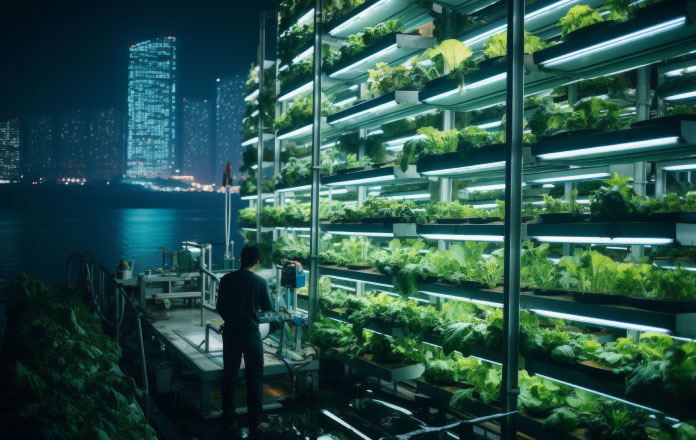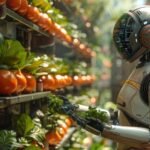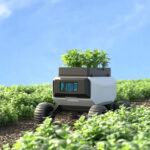Agriculture is the fundamental pillar of human civilization, showcasing our capacity to utilize nature for sustenance. However, this longstanding sector encounters numerous obstacles that hinder efficiency, affect livelihoods, and jeopardize global food security. According to the Food and Agriculture Organization, by 2050, we will need to increase food production by 60 percent to accommodate a population of 9.3 billion. Achieving this with traditional farming practices poses challenges, exacerbating the strain on natural resources.
Artificial Intelligence emerges as a potential solution to these challenges. The AI in Agriculture Market expects to expand from $1.7 billion in 2023 to $4.7 billion by 2028, underscoring the critical role of advanced technologies in agriculture. With AI integration, farming practices have evolved, offering innovative solutions to age-old challenges. From precision farming to crop monitoring, AI is revolutionizing agriculture, ushering in a new era of efficiency, sustainability, and productivity.
Precision agriculture, enabled by AI, allows farmers to optimize their resources and maximize yields. Farmers can make informed decisions regarding crop planting, irrigation, and fertilization by leveraging data analytics and machine learning algorithms. AI-powered drones and satellites capture high-resolution images of farmland, providing valuable insights into crop health, soil moisture levels, and pest infestations. This data enables farmers to implement targeted interventions, reducing waste and increasing productivity.
One of the key benefits of AI in agriculture is its ability to enhance crop monitoring and management. Farmers can collect real-time data on various environmental factors such as temperature, humidity, and rainfall through sensors and IoT devices. AI algorithms analyze this data to predict crop growth patterns and identify potential risks. For example, predictive analytics can alert farmers to impending disease outbreaks or pest infestations, allowing timely intervention to mitigate losses.
Moreover, AI-powered robotic systems are revolutionizing tasks, including planting, harvesting, and weeding. Autonomous tractors equipped with AI technology can navigate fields with precision, planting seeds at optimal depths and spacing. Similarly, robotic harvesters equipped with computer vision can identify ripe fruits and vegetables, reducing the need for manual labor and minimizing post-harvest losses.
In addition, AI is playing a pivotal role in sustainable agriculture practices. AI helps farmers reduce their carbon footprint and conserve natural resources by optimizing resource usage and minimizing environmental impact. For instance, AI-driven irrigation systems can precisely control water usage based on real-time data, ensuring that crops receive the right amount of water without wastage. Additionally, AI-powered predictive analytics enable farmers to adopt climate-smart practices, such as crop rotation and cover cropping, to enhance soil health and resilience.
The benefits of AI in agriculture extend beyond the farm gate, influencing the entire food supply chain. AI-enabled supply chain management systems optimize logistics, reducing food waste and ensuring timely delivery of fresh produce to consumers. Advanced forecasting models powered by AI help food retailers and distributors anticipate demand fluctuations, leading to more efficient inventory management and reduced food spoilage.
However, the widespread adoption of AI in agriculture also presents challenges and considerations. Data privacy and security issues must be addressed to protect sensitive farm data from cyber threats. Additionally, there is a need for investment in infrastructure and training to ensure that farmers, especially those in rural areas, can effectively utilize AI technologies.
AI is transforming the farming industry, offering innovative solutions to enhance productivity, sustainability, and resilience. By harnessing the power of data and machine learning, farmers can optimize resource usage, minimize environmental impact, and meet the growing demand for food in a rapidly changing world. As AI continues to evolve, its role in agriculture will become increasingly indispensable, shaping the future of farming for generations to come.




